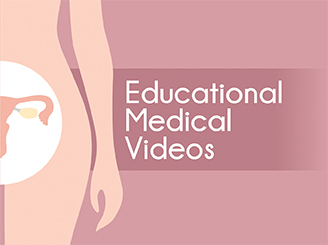Severe teenage acne linked to endometriosis
September 2, 2015, no responses, by: Women Health Center, Tags:
Scientists have discovered that women with a record of severe acne in their adolescence are at considerably increased risk of endometriosis. (Dr. Jing Xie of Harvard Medical School in Boston)
We should therefore consider early referral for patients with a history of severe teenage acne and non-specific symptoms, such as an irregular menstrual cycle or abdominal pain and gynaecologists should consider surgical intervention earlier in these patients than would otherwise be warranted.
“Because this is a very obvious indicator, you can easily observe it, it may actually improve diagnosis, and may be used in screening,” he said.
You may be aware that current New Zealand statistics are that it takes an average of 6.9 years from first presentation to a GP to diagnosis of endometriosis and that this increases to 9.5 years for women who first present under the age 20 but decreases to just 4 years for women with infertility.
“A single nucleotide polymorphism on chromosome 8q24 was recently linked to a four-fold increased risk of severe teenage acne, while several studies have found altered expression of the c-myc gene — also located at chromosome 8q24 — in endometriosis, the researchers note.”
The authors conducted a prospective cohort study using data from the Nurses Health Study II, which included 88,623 women followed from September 1989 to June 2009.
During follow-up, there were 4,382 new (7.9% of the group), laparoscopically confirmed cases of endometriosis among the study participants. Women who reported a history of severe teenage acne were 20% more likely to develop endometriosis.
The association remained after the researchers adjusted for isotretinoin use and tetracycline use. Infertility history or body mass index did not influence the results, and the link was independent of skin and hair characteristics.
The authors concluded that the most likely mechanism may be genetics.
You can read the full study in the Oxford Journal of Human Reproduction online.
Categories
- Endometriosis (3)
- Female Sexual dysfunction (1)
- General (7)
- Incontinence (1)
- Infertility (2)
- Interstitial Cystitis (1)
- Menopause (5)
- Overactive Bladder (1)
- Polycystic Ovaries (1)
- Surgical (2)
Archives
- October 2017 (2)
- March 2017 (1)
- March 2016 (1)
- February 2016 (1)
- November 2015 (3)
- October 2015 (5)
- September 2015 (1)
- August 2015 (2)
- July 2015 (3)
- March 2015 (2)
- January 2015 (1)
Recent Posts
- How Accurate is biopsy sampling in Endometrial Cancer?
- Hormone Therapy: WHI study Follow up reveals no change in Mortality after 18-Year
- How to manage Interstitial Cystitis/Bladder Pain Syndrome?
- Potential Benefits of Diagnosis and Treatment on Health Outcomes Among Elderly People With Symptoms of Overactive Bladder
- The Zika Virus summarised



Leave a Reply